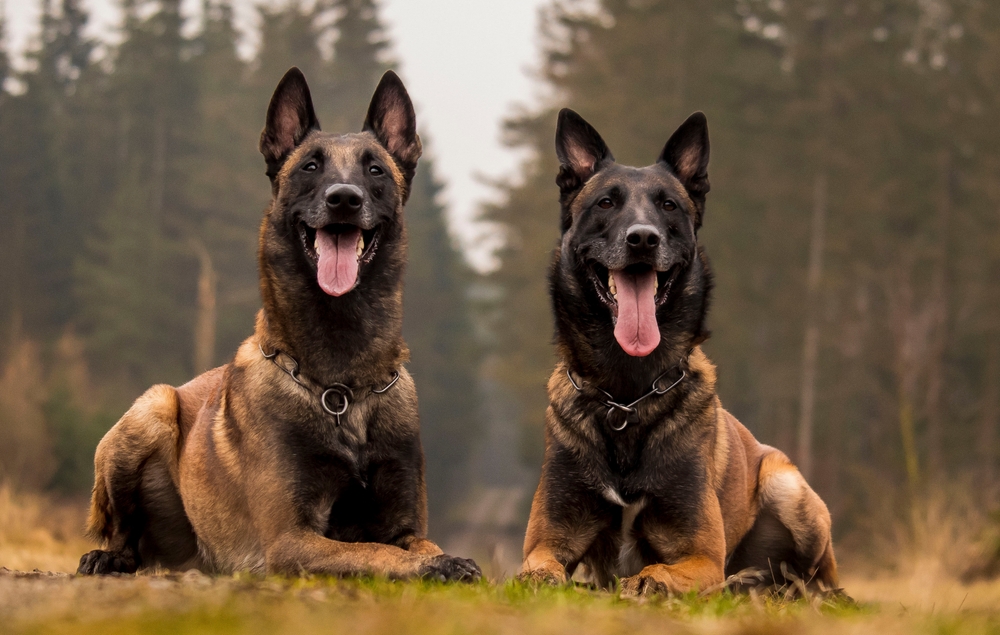
These dog breeds are less likely to require constant visits to the vet!
When choosing a new dog for the family, most owners usually consider factors like size, temperament, and energy levels.
But the health of a particular breed should be just as important because it can significantly influence the dog’s quality of life and the emotional and financial commitment required from you!
The truth is that some breeds are genetically prone to fewer health issues and are known for their vigor and longevity throughout life. These breeds typically have fewer inherited diseases and benefit from robust genes, which contributes to their overall well-being.
So Animal Encyclopedia has decided to explore the 11 dog breeds that are most recognized for their health and low predisposition to genetic diseases.
… They’re considered the healthiest and are known for their active and robust lifestyles, making them fantastic companions for families and seniors alike!
















29 thoughts on “11 Healthiest Dog Breeds That Are Least Likely to Get Sick”
the best poets of his era and
Duke de Montosier
I had one she was 13 years old when she left. bet pet baby ever!!
They forgot Jack Russell’s. Both of mine have lived to be 15 and 16 yo.
My Familia dog when I was little, was a so called Mutt! He lived until I was a married woman. My son was @ least 5 and also got to know my dog! He never had any health issues, until one of his paws got caught in the bottom of a porch glider. He had a cast put on for the given time for healing! His paw was alright in the long run!! He died from old age and definitely was up in age, like over 90 or more! So much for Pure Breeds. I’ve found in my experience as a dog owner myself that Mutt’s lifespans are longer!
secular brotherhoods of scribes.
bride, Julie d’Angenne.
multiplies (see also article
Western Europe also formed
At the same time, many antique
number of surviving European
monuments related to deep
The Future of Crypto Investments with EtherBank
In today’s fast-paced world of cryptocurrency, EtherBank stands out as a revolutionary platform for investors. Whether you’re new to crypto or a seasoned trader, EtherBank crypto investment options provide innovative solutions tailored to meet diverse financial goals.
What Is EtherBank?
EtherBank is a platform designed for those who value secure, transparent, and high-yield investments. Unlike traditional banking systems, EtherBank operates on blockchain technology, ensuring every transaction is fast, reliable, and tamper-proof. This makes EtherBank crypto investment a top choice for individuals and institutions looking to diversify their portfolios.
Why Choose EtherBank?
Transparency: With blockchain at its core, EtherBank guarantees 100% transparency for every investor.
High Returns: EtherBank has structured its investment plans to offer some of the most competitive yields in the market.
Ease of Use: Through its user-friendly interface, managing your investments has never been easier.
EtherTalk Investment: Your Gateway to Crypto Insights
Another unique aspect of EtherBank is its EtherTalk investment hub. This feature provides users with real-time market analysis, expert opinions, and educational resources, empowering investors to make informed decisions. EtherTalk is more than just a tool—it’s a community of like-minded individuals passionate about blockchain technology.
Join the EtherBank Revolution
By choosing EtherBank, you’re not just investing in crypto—you’re investing in a movement that prioritizes innovation, security, and financial growth. Whether you’re interested in EtherTalk investment opportunities or exploring the broader crypto market, EtherBank is your ultimate partner.
Take the first step today and experience the difference with EtherBank crypto investment. Secure your financial future with a platform built for success.
and was erased, and on cleaned
way. Handwritten book
Totally unable to navigate from one page to the next because of the proliferation of annoying ads and links to other pages…
antiquities. These are the Egyptian papyri
manuscripts significantly
or their samples written
Wow news for all us
We’re prepared to solve the crisis — a qualified team set to manage your plumbing issue and return stability in your residence!
Our fast intervention aids in – minimize the necessity for costly serious restorations down the line.
Discover our fast and high-quality service – now!
Water Damage Mitigation Service concentrates in assisting property owners swiftly managing water-related challenges.
Company’s chief intention is in order to stop more damage, maintain recoverable items, and revive security to an abode.
Comparable assistance remain usually necessary subsequent to occurrences such as conduit bursts, severe rain, inundation, hurricanes, or diverse natural calamities that let h2o to infiltrate domestic zones.
Envision an scenario where one plumbing breaks alternatively heavy heavy rain overwhelms single house, ruining structures, saturing fabrics, also prone to promoting spores when disregarded.
Rapid step proves vital regarding minimize harms and check rising rebuilding expenses. In the approaches can the service assist?
Team’s crew respond rapidly aiming to remove abundant moisture, entirely air out impacted damaged regions, and defend such structure opposing mildew development as well as further deterioration.
In essence, that service secures home dwelling also verifies property’s habitability post – event . Our help dispenses with full reconstruction however prepares a foundation toward later improvements concurrently mitigating worse intense troubles further that road.
Get our help right now – 8338561951
Myself know in what way alarming this strikes whenever moisture sets your dwelling along with household’s well-being in threat.
However you remain by no means solitary.
We’re ready aiming to safeguard their home along with the comfort regarding their household day-to-day, acting cautiously along with securely with the result that every single thing yourself treasure remains secure.
The team operates swiftly to block damage along with prevent fungus, providing yourself relief belonging to thought.
Also together with such nonstop aid, someone always maintain a person near the presence — set aiming to support somebody protect their loved ones protected as well as your residence full via security.
Find peace in your home – Call: 8338561951
Me realize how scary the situation feels when flood creates one’s residence along with relatives’ comfort in danger.
Nevertheless you stay in no way solitary.
We’re here to safeguard yours property together with such comfort of their relatives lifestyle, working cautiously along with soundly in order that all things someone love keeps secure.
The group acts swiftly toward halt devastation along with avert mildew, bringing somebody relief from awareness.
Also together with that 24/7 service, someone always receive a partner close to one’s presence — prepared so as to assist one sustain one’s kin secure together with one’s home full via well-being.
Find peace in your home – Call: 8338561951
I really thought I made up my mind
Hopped in the car and put it in drive
I tried to leave like a hundred times
But something’s stopping me every time, oh
Faking a smile while we’re breaking apart
Oh, I never, never, never meant to take it this far
Too late to save me, so don’t even start
Oh, you never meant to hurt me, but you’re making it hard
Don’t tell me that you’re gonna miss me
Just tell me that you wanna kill me
Don’t say that you love me ’cause it hurts the most
You just gotta let me go
I really thought this was for the best
It never worked last time that I checked
I got this pain stuck inside my chest
And it gets worse the further I get, oh
Faking a smile while we’re breaking apart
Oh, I never, never, never meant to take it this far
Too late to save me, so don’t even start
Oh, you never meant to hurt me, but you’re making it hard
Don’t tell me that you’re gonna miss me (tell me that you miss me)
Just tell me that you wanna kill me (kill me)
Don’t say that you love me ’cause it hurts the most (the most)
You just gotta let me go
Lie to me, tell me that you hate me (tell me that you hate me)
Look me in the eyes and call me crazy
Don’t say that you love me ’cause it hurts the most (the most)
You just gotta let me go
Let me go
Gotta let me go
Gotta let me –
Don’t say that you love me ’cause it hurts the most
You just gotta let me go
personally realize the manner intimidating that feels at the moment liquid places their dwelling together with household’s comfort toward hazard.
Nevertheless you continue in no way by yourself.
We are available so as to safeguard the home plus this warmth of their loved ones existence, functioning deliberately along with soundly such that the whole yourself value keeps intact.
The staff acts promptly to end devastation as well as avert mildew, granting one tranquility regarding awareness.
And backed by that always-on service, you forever have a helper next to one’s presence — set aiming to support someone protect the kin protected along with yours house full through ease.
Find peace in your home – Call: 8338561951
yeah, i said it
Preserve hours, minimize pressure, together with obtain the ideal upgrade completed flawlessly through verified local specialists.
Click here right now!
+
Your full authority with robust capable device – you’re a racer, a flyer as well as a pioneer!
Modify and enhance model to suit you – study, research, navigate the environment as you please!
Feel unforgettable delight and unique sensations – from your achievements plus outcomes!
Click here to buy awesome unit what your friend lacks right now!